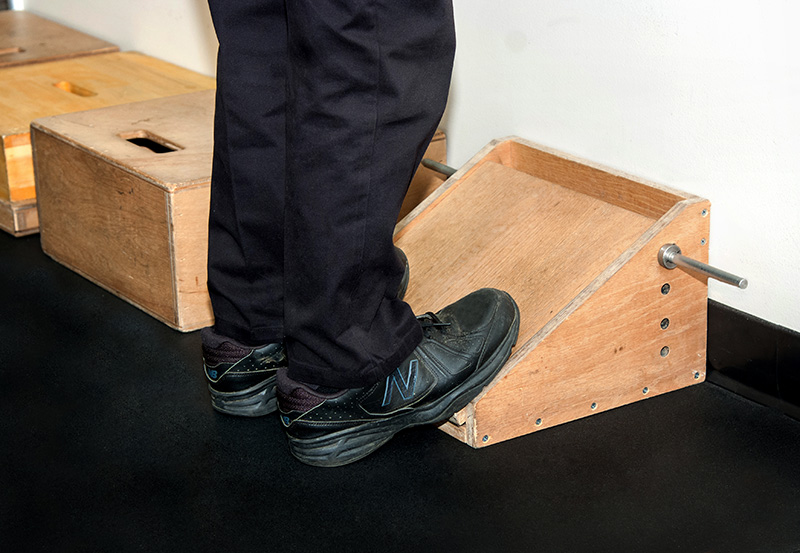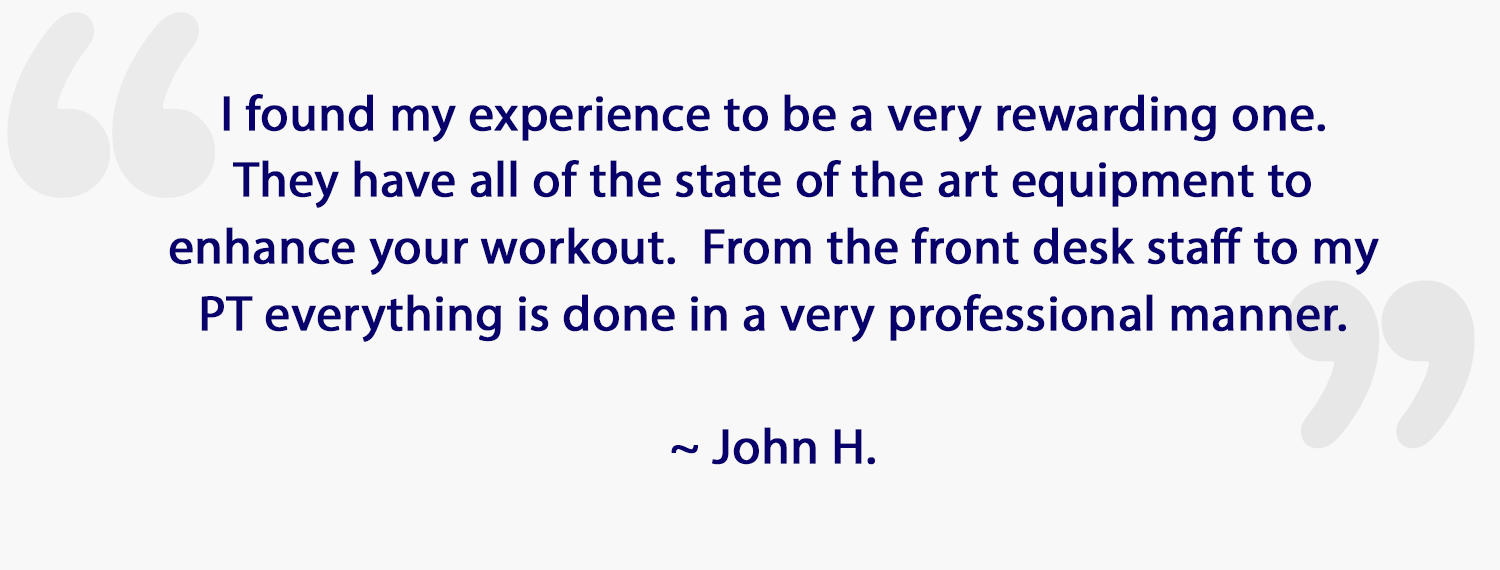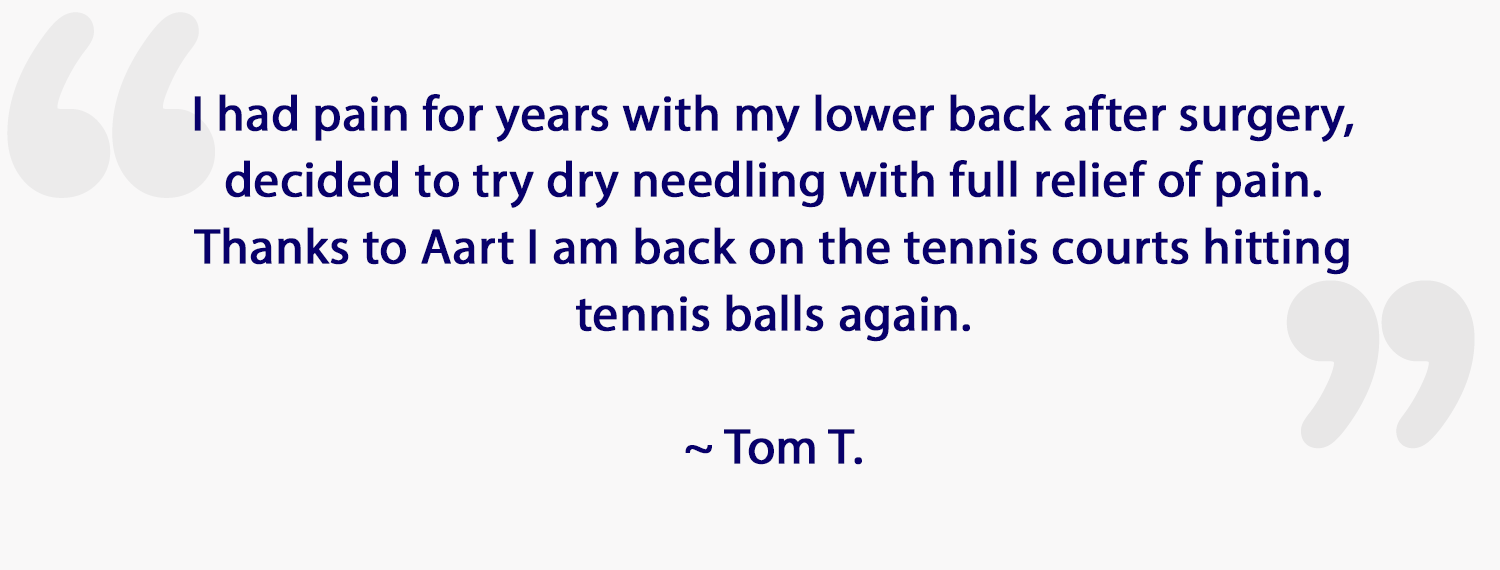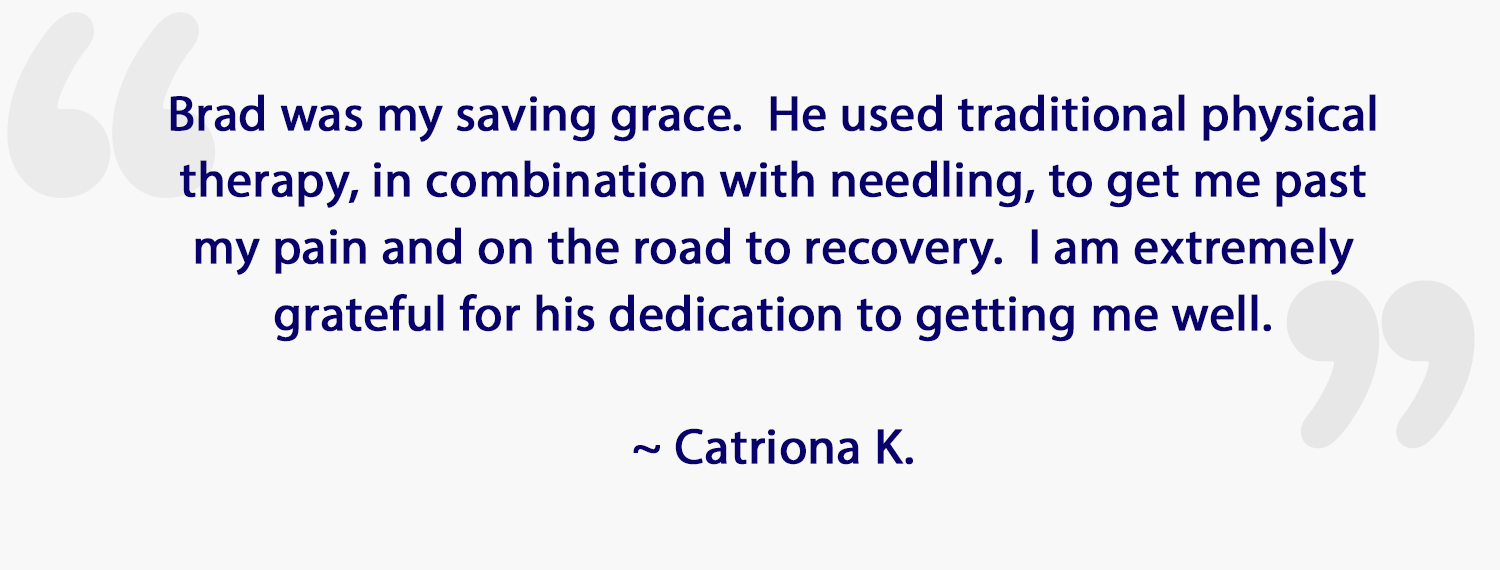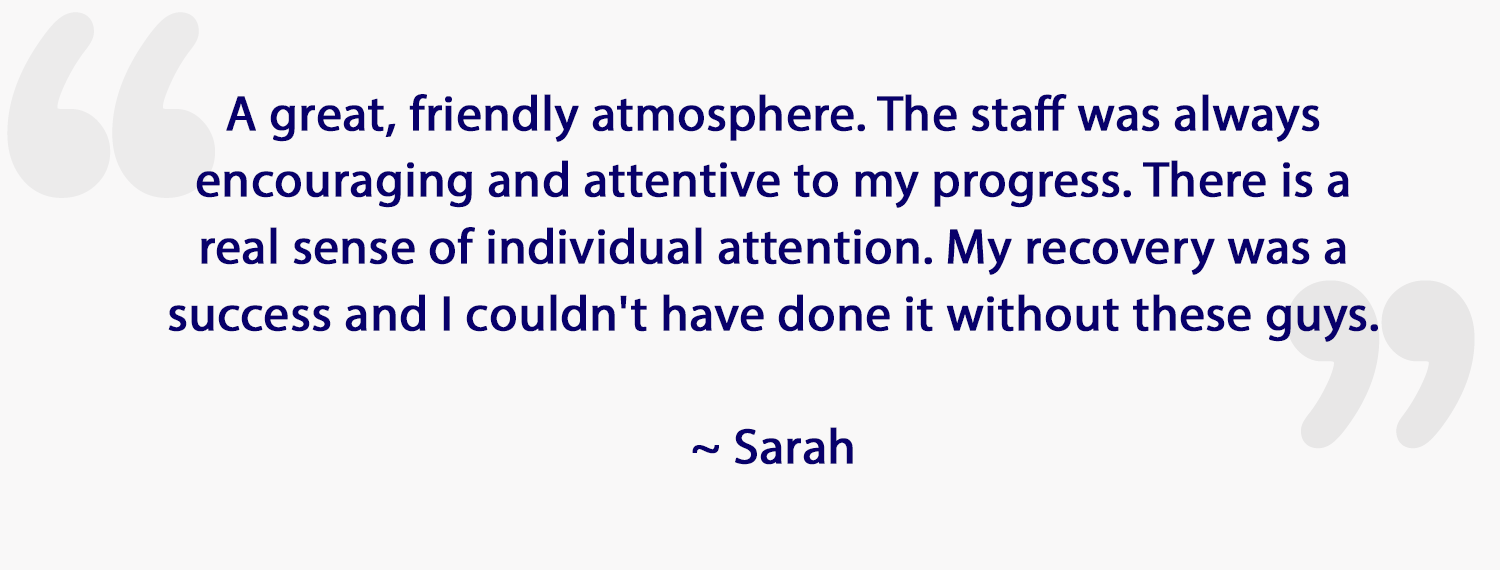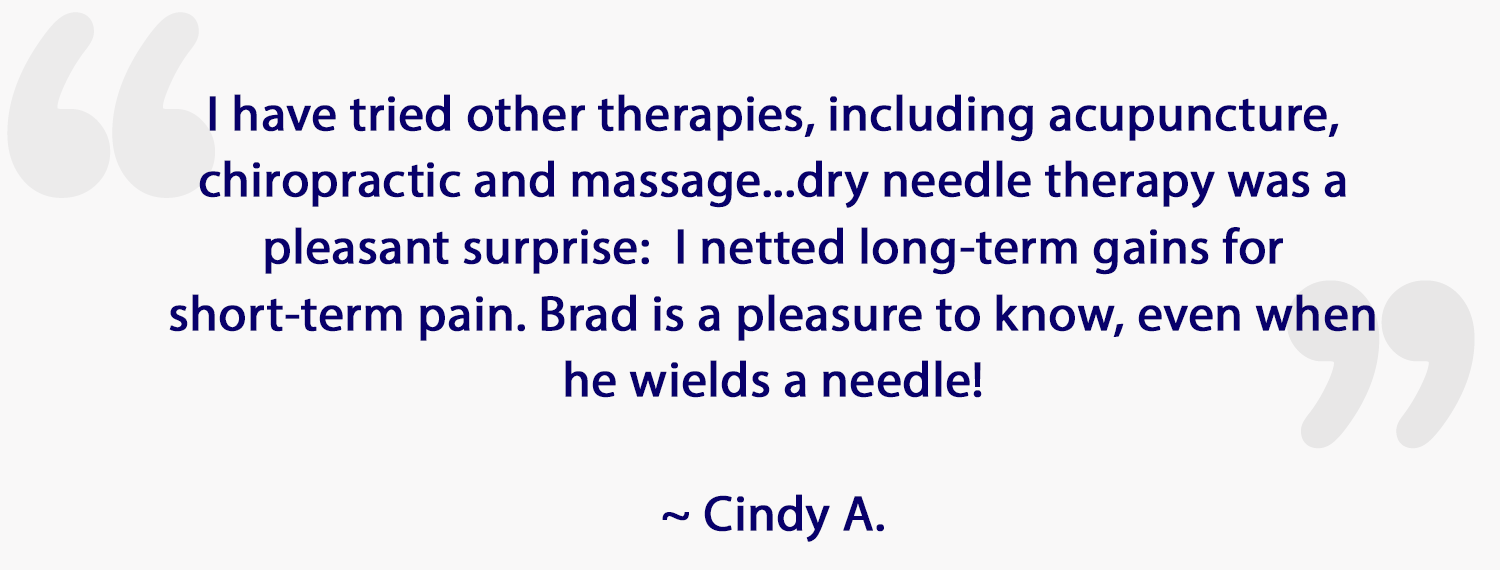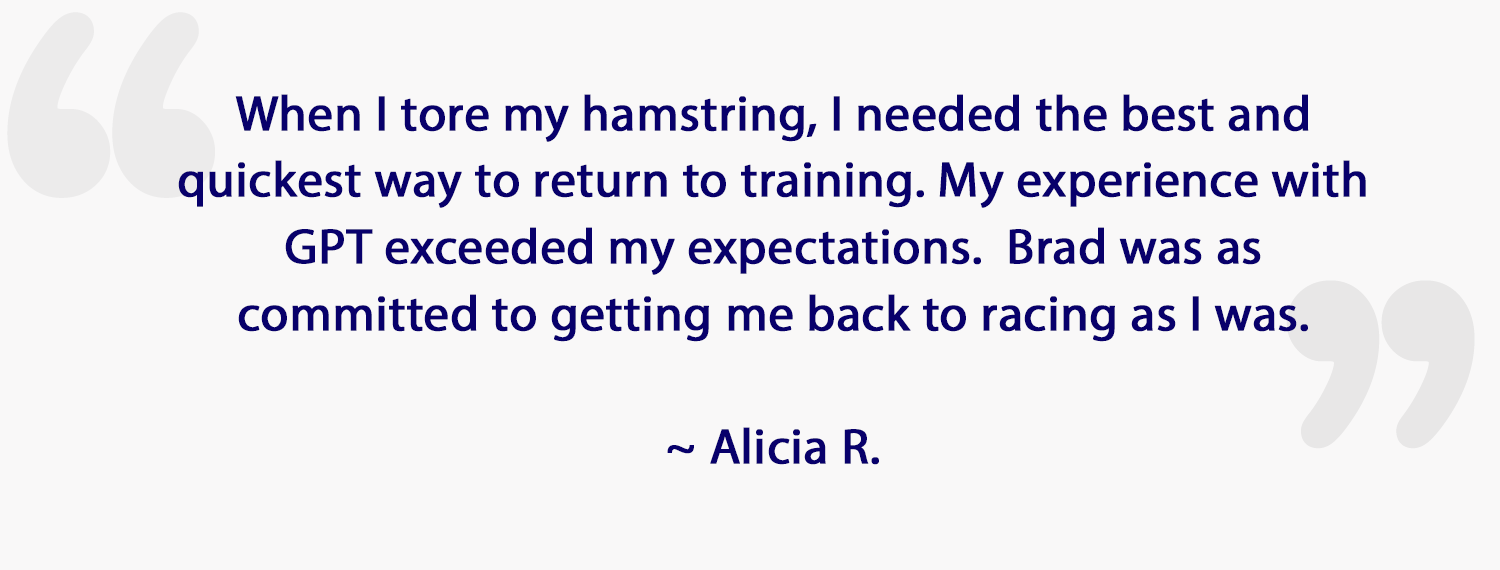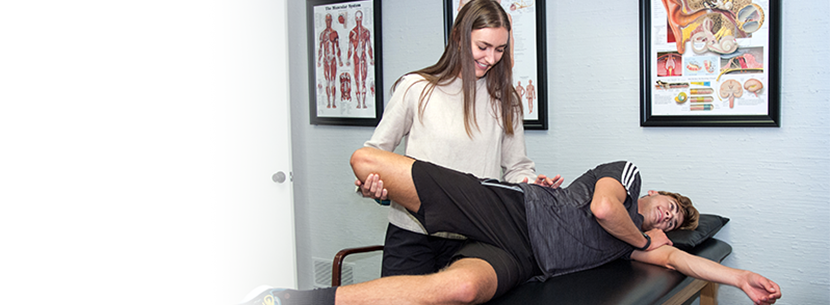
VESTIBULAR
REHAB
Treatment for BPPV, Vertigo, Dizziness and Balance Problems
Vestibular rehabilitation for dizziness and vertigo is an evidence-based therapy program used to treat balance and dizziness disorders such as labyrinthitis and various types of vertigo. It is based on the body’s natural ability to compensate for balance problems.
The vestibular system is a part of the inner ear that helps to control balance and eye movements. If your inner ear is damaged by disease or injury, you may benefit from vestibular rehabilitation, dizziness treatment or vertigo treatment.
Certain exercises strengthen this ability, and with a focused exercise routine, patients can improve their balance and reduce or eliminate dizziness.
We will evaluate each patient and perform tests in order to develop an individualized vestibular treatment, dizziness treatment or vertigo treatment plan which may include:
- Balance retraining and balance strategies: helping the body to regain balance and coordination through a variety of exercises and techniques.
- Sensory organization techniques and gaze stabilization strategies: helping the body to use its senses to overcome dizziness and decreased balance.
- Habituation exercises: helping the body to decrease dizziness by repeatedly exposing it to a stimulus.
- Canalith Repositioning Maneuver: a maneuver performed by the therapist to manipulate the calcium crystals found in the inner ear. This may also be called the Epley or Semont maneuver.
- Individualized home exercise program: an exercise program patients can do at home, based on each patient’s individual needs. This may include specific exercises and a walking or other exercise program.
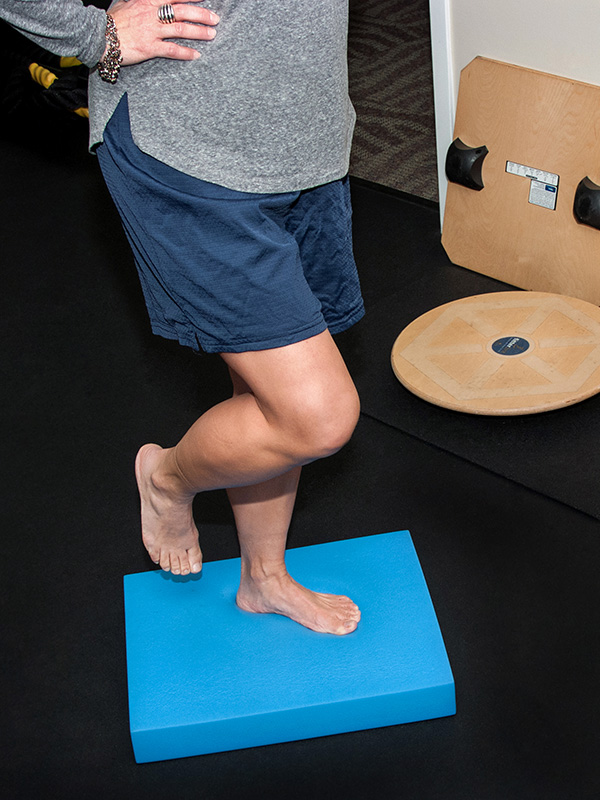
What Diagnostic Tests Are Performed?
Balance is affected by the way the central nervous system uses information from the inner ear, the eyes, the muscles, and the sensation of the lower extremities.
In addition to strength, range of motion, reflexes and coordination, we will evaluate:
- Functional limitations (tasks a person is unable to do because of balance or dizziness problems).
- Sensory integration (the way the body interprets information from the senses `such as your vision, sensation on your feet and in your joints, and your inner ear).
- Gaze stability (the ability of the body to visually focus, and stay in focus when you or your head moves).
- Static and dynamic balance (the ability to balance with and without movement).
- Positional testing (testing a patient’s response to a variety of positions, i.e. sitting, lying down, rolling, bending forward, etc.).
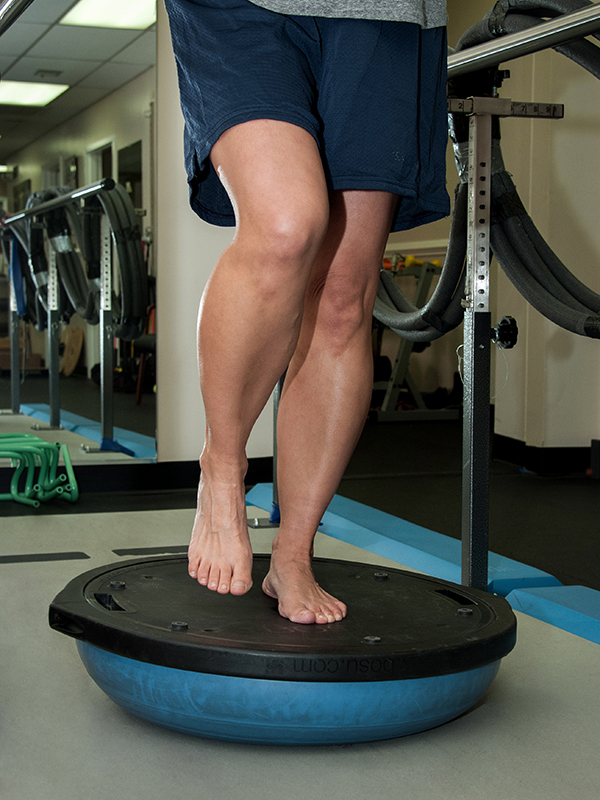
The Vestibular Rehabilitation Program offers treatments for a wide variety of conditions that result in balance problems and dizziness. Some of these may include:
- Vestibular Neuronitis: inflammation of or damage to the nerve that connects the inner ear to the brain.
- Labyrinthitis: inflammation of the labyrinth (the inner part of the ear that controls balance).
- Benign Paroxysmal Positional Vertigo (BPPV): caused by calcium crystals floating in the ear as the result of a blow to the head, or weakened and collapsed hair cells that release calcium crystals into the ear.
- Age Related Vestibular Loss: as we age our inner ear systems become less sensitive (much like vision and hearing.)
- Post Concussive Syndrome: damage to the brain or inner ear after traumatic brain or head injury can cause dizziness, balance, gait and coordination problems.
- Drug-Induced Ototoxicity: damage to the hair cells of the inner ear, caused by long-term intravenous use of certain types of drugs.
- Acoustic Neuroma: slow-growing tumor of the eighth cranial nerve, which can be corrected by surgery.
- Meniere’s Disease: over-accumulation of fluid in the inner ear that causes attacks of vertigo, ringing in the ear, and fluctuating hearing loss.
- Migrainous Vertigo: dizziness associated with the auras (light and sound sensitivities) of a migraine headache.
SPECIALTIES
With advanced knowledge of treating concussions and neurologic conditions, our Doctors of Physical Therapy play a crucial role in getting you back in the game for those suffering from complications related to concussion. [more]
The Sports Recovery Program makes the high-quality recovery services that professional athletes, pro sports teams, and USA Olympic programs depend on available to people of all ages and fitness levels living right here in the Triad. [more]
If you have had physical therapy in the past but did not receive the care or gain the results you expected, we encourage you to visit our clinic. Our hope is that we can be your resource for "Second Opinion Physical Therapy." [more]
Dry needling targets myofascial trigger points with a small needle in order to produce a local twitch response. This twitch response results in muscle relaxation and relief from a host of conditions, such as neck and back pain, headaches/migraines, TMJ/TMD, and many more. [more]
Physical therapy of orofacial pain is an evidence-based physical program used to treat pain in the jaw, head and neck regions. Orofacial physical therapy is a highly specialized part of orthopedic physical therapy. [more]
Vestibular rehabilitation for dizziness and vertigo is an evidence-based therapy program used to treat balance and dizziness disorders such as labyrinthitis and various types of vertigo. [more]
SPECIALIZATIONS
With advanced knowledge of treating concussions and neurologic conditions, our Doctors of Physical Therapy play a crucial role in getting you back in the game for those suffering from complications related to concussion.(more)
The Sports Recovery Program makes the high-quality recovery services that professional athletes, pro sports teams, and USA Olympic programs depend on available to people of all ages and fitness levels living right here in the Triad. [more]
If you have had physical therapy in the past but did not receive the care or gain the results you expected, we encourage you to visit our clinic. Our hope is that we can be your resource for "Second Opinion Physical Therapy." [more]
Dry needling targets myofascial trigger points with a small needle in order to produce a local twitch response. This twitch response results in muscle relaxation and relief from a host of conditions, such as neck and back pain, headaches/migraines, TMJ/TMD, and many more. [more]
Physical therapy of orofacial pain is an evidence-based physical program used to treat pain in the jaw, head and neck regions. Orofacial physical therapy is a highly specialized part of orthopedic physical therapy. (more)
Vestibular rehabilitation for dizziness and vertigo is an evidence-based therapy program used to treat balance and dizziness disorders such as labyrinthitis and various types of vertigo. [more]





